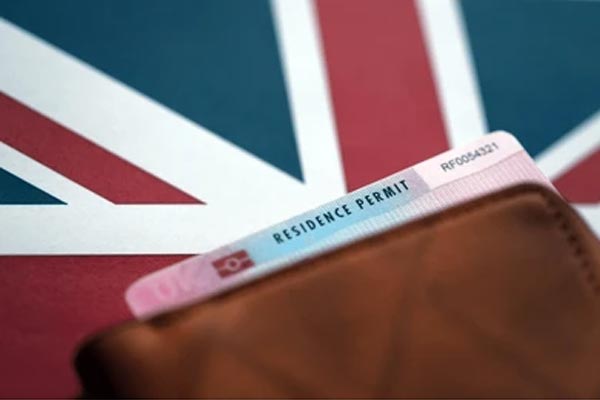The UK continues to be a top destination for international students, offering world-class education and vibrant cultural experiences. However, keeping up with changing requirements is essential for a successful study-abroad journey. The UK government has moved toward a fully digital visa system, which means that after 31st December 2024, the traditional Biometric Residence Permit (BRP) cards will be replaced by electronic visas (e-Visas). Alongside this, changes in the cost of living in the UK will also impact your budget. Here is everything you need to know about these transitions.
If you are an international student planning to study in the UK, there are some key changes you need to be aware of regarding your visa status and living expenses.
What is a BRP Card?
The BRP (Biometric Residence Permit) card is a physical document issued to international students who are granted a visa for six months or more. The card serves as proof of your identity, right to stay, and ability to work or study in the UK. It includes personal details like your name, age, and biometric information (e.g., a photo and fingerprints).
As of 31st December 2024, all BRP cards will expire, even if your visa is still valid. This change is part of a larger plan by the UK government to replace physical immigration documents with e-Visas by the end of 2025.
The Transition to eVisas
The UK government is transitioning to a fully digital visa system, and by 2025, physical BRP cards will no longer be issued to visa holders, including students. The eVisa will function as a digital version of the BRP card and will be linked to your passport. It will contain the same information about your immigration status, visa duration, and work/study rights, but will be accessed and managed online through your UKVI (UK Visas and Immigration) account.
Why Did BRP Cards Expire in December 2024?
If you hold a UK student visa, you may have noticed that your BRP card expired on 31st December 2024, even if your visa extends beyond this date. This is part of the UK’s plan to phase out BRP cards in favour of the eVisa system. The expiration date does not affect the validity of your visa; it simply means you will no longer use a physical BRP card to prove your right to stay and work in the UK.
What is an eVisa?
An eVisa is an electronic visa that replaces the BRP card. Once you transition to an eVisa, all your visa information will be stored online in your UKVI account. You can access it any time, and it will be used for verifying your immigration status when needed, such as when you are renting a property or applying for a job.
The eVisa is linked to your passport, so there is no need to carry a physical card around with you. This move aims to simplify visa management, reduce administrative overhead, and improve border security.
Does This Affect My Visa Duration?
No, your visa duration remains the same. The change is purely administrative and relates only to how your immigration status is documented. The expiration of the BRP card does not affect your right to stay in the UK, work, or study.
What Happens if I Don’t Apply for an eVisa?
If you don’t transition to an eVisa by 31st December 2024, you will no longer have a valid document proving your immigration status in the UK. This could lead to complications when dealing with employers, landlords, or border control officers.
Changes in Living Expenses for International Students
While the transition from BRP cards to eVisas may be the most instant change affecting your visa status, international students should also prepare for fluctuations in living expenses in the UK. The cost of living has been rising, and these changes could impact your overall budget during your studies. Here is a breakdown of what to expect in terms of living costs:
- For students studying outside London: £1,136 per month,
- For students studying in Inner London: £1,483 per month.
- Housing Costs
Rent is typically the largest expense for international students in the UK. The average monthly rent for a one-bedroom apartment in London is around £1,200 to £1,700. Outside of London, rents can range from £800 to £1,200, depending on the city or region. Some universities offer on-campus accommodation, which can be more affordable, but you will need to apply early, as these are often in high demand.
- Utilities and Bills
Utility bills (gas, electricity, water, and council tax) in the UK have been rising. On average, students can expect to pay approximately. £150 to £250 per month for utilities, depending on their usage and location. If you live in university-provided accommodation, some utilities may be included in the rent.
- Food and Groceries
The cost of groceries has increased due to inflation. A monthly grocery bill for a single person can range between £150 and £250, depending on your eating habits and where you shop. Budget supermarkets like Lidl and Aldi are great places to save money, and cooking your own meals is often cheaper than eating out.
- Transportation
Public transport in the UK, especially in cities like London, can be expensive. A monthly travel card in London can cost upwards of £150, while transport costs in smaller cities may be less. Many students use student discounts to save on transport, and some universities offer discounted or free bus passes.
- Health Insurance and NHS Surcharge
As an international student, you must pay the Immigration Health Surcharge (IHS) as part of your visa application, which gives you access to the UK’s National Health Service (NHS). The cost of private health insurance, if you choose to take it, can range from approximately. £50 to £100 per month.
- Other Expenses
Don’t forget to budget for personal expenses, entertainment, and study materials. These costs can vary widely depending on your lifestyle, but students typically spend around £100 to £200 per month on non-essential items.
Conclusion
The transition from BRP cards to eVisas will make the UK’s immigration system more efficient and accessible. As a student, this shift will primarily affect how you manage your visa status, but it won’t change your right to live, work, or study in the UK. Be sure to follow the instructions from the Home Office to transition to your eVisa.
In addition, it is important to be aware of the rising cost of living in the UK. Housing, utilities, food, and transport are all expected to continue increasing in the coming years. By understanding these changes and budgeting accordingly, you can ensure a smooth and successful time studying in the UK.
Stay informed and prepared for these changes to make the most of your student experience in the UK!



